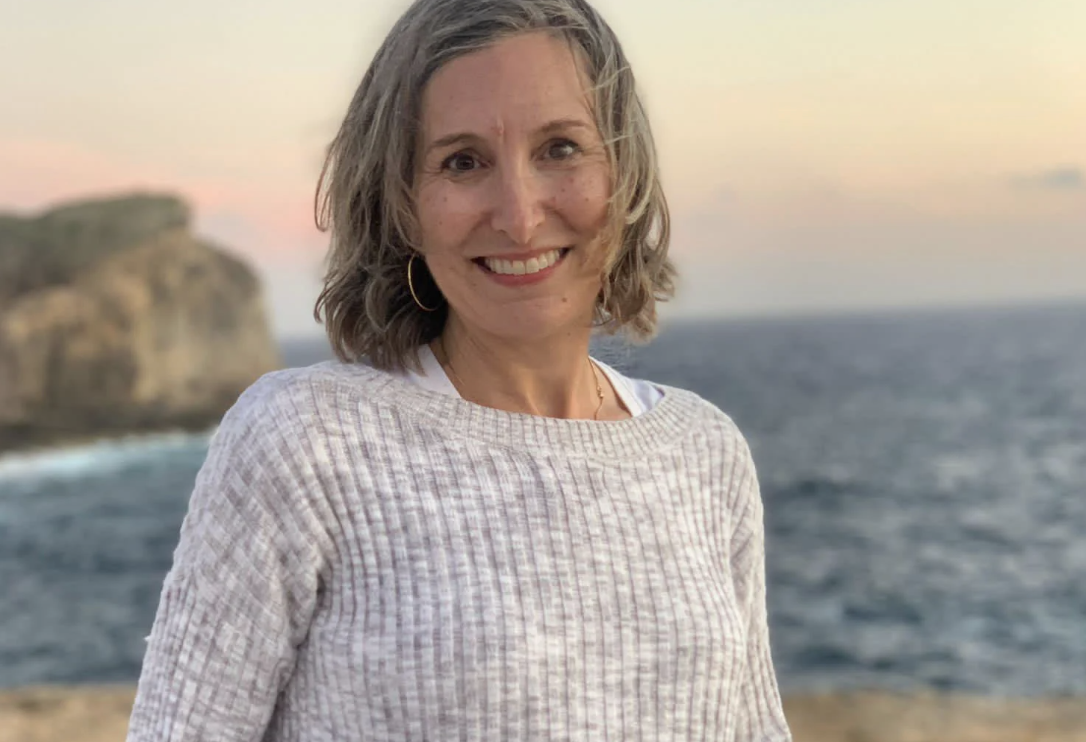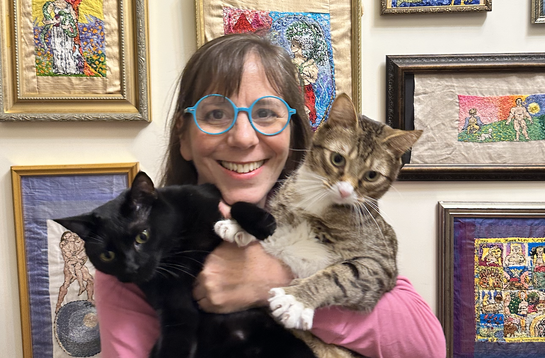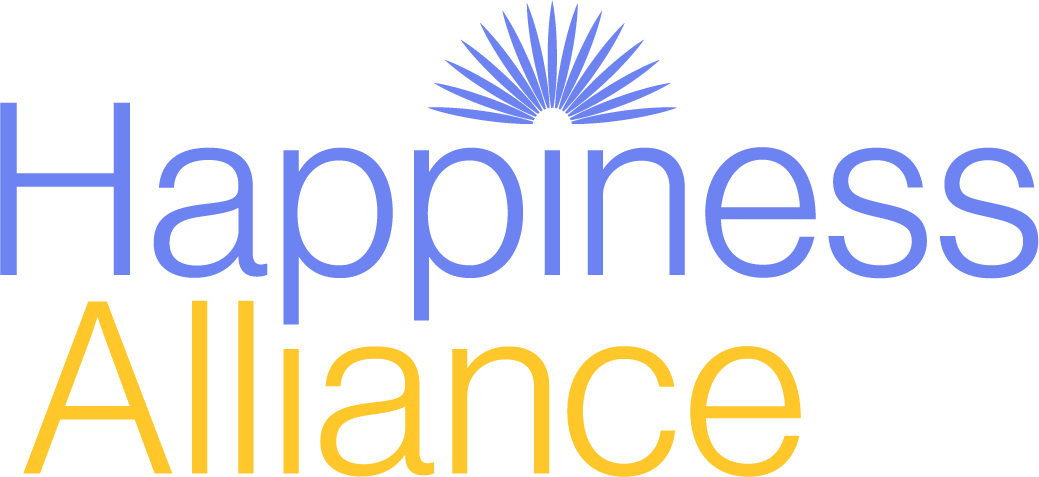How One Nature and the Happiness Alliance are collaborating
Beth Allgood of One Nature and Laure Musikanski of the Happiness Alliance have researched, created and tested a community wellbeing-centered approach to conservation, which aims to support conservation initiatives in achieving stronger and more enduring positive outcomes for both wildlife and people. Beth builds upon of decades of experience with global, national and regional wildlife conservation projects, and Laura build on her experience in working with communities to holistically measure well-being and transform economic & governmental systems. With their combined forces and their many friends who have collaborated with Beth and Laura an understanding emerged:
OneNature and the Happiness Alliance have created a peer-reviewed validated community well-being index that provides a model of subjectively measuring holistic well-being. It’s designed to assess life satisfaction, the many domains of well-being, and communities’ feelings about wildlife and nature around them.
We call It Wild Happiness.
The Wild Happiness model engages communities at key inflection points, starting from initial conception through planning and implementation to short, mid and longer-term evaluation, to both gather critical information and input from local stakeholders as well as provide two-way opportunities for education and awareness-raising. Our engagement model is data-driven, providing measurable benchmarks and metrics for improved financial, programmatic, and community outcomes throughout the lifetime of the conservation project. Incorporating the Wild Happiness model and methodology into conservation projects supports:
- both objective and subjective well-being indicators are vital to establishing a holistic well-being baseline
- A holistic well-being baseline that can provide reliable information on community perceptions, as well early warning signs of unanticipated challenges
- A measurable holistic well-being approach can guide wildlife conservation projects towards greater sustainability by creating and maintaining them to benefit community well-being holistically.
- A measurable holistic well-being approach can yield valuable Information for policy makers and the future of all species, including humans.
OneNature and the Happiness Alliance have created a peer-reviewed validated community well-being index that provides a model of subjectively measuring holistic well-being. It’s designed to assess life satisfaction, the many domains of well-being, and communities’ feelings about wildlife and nature around them.
We call It Wild Happiness.
The Wild Happiness model engages communities at key inflection points, starting from initial conception through planning and implementation to short, mid and longer-term evaluation, to both gather critical information and input from local stakeholders as well as provide two-way opportunities for education and awareness-raising. Our engagement model is data-driven, providing measurable benchmarks and metrics for improved financial, programmatic, and community outcomes throughout the lifetime of the conservation project. Incorporating the Wild Happiness model and methodology into conservation projects supports:
- Meaningful community engagement in project planning.
- Enhanced monitoring and evaluation of project impact.
- An “early-warning system” to identify emerging stakeholder concerns before and during the project.
- Increased likelihood of positive project outcomes.
- Longevity for sustained positive conservation outcomes as a result of the project.
- Ability to report on holistic social and community impacts from the project.
- Heightened understanding of the true impacts of the project on local communities.
- Socially-just investments that are also benefit wildlife.
-
The Wild Happiness survey is designed so your wild-life conservation projects contribute towards a shift in how humans interact with nature & sustainable wild-life conservation.
Why and How We Collaborate
Human activity is a leading cause of climate change and loss of biodiversity. The impact of societies efforts to continually grow our economies has contributed to climate changes such as an increase in extreme weather events and to a biodiversity extinction crisis. The impacts of these climate and biodiversity crises directly threaten the well-being and lives of people around the world. Conversely, the impact of transforming our goals to understanding and growing well-being has the potential to save our planet, wildlife, and our species. Instead of viewing lifestyle changes as a sacrifice for planetary sustainability, implementing a well-being approach in our lives has the potential to make our lives better while we live more harmoniously with the earth and other species.
To understand and measure well-being in wildlife and climate conservation projects, it’s common practice to rely on objective indicators (information observed about the community) instead of subjective indicators (information about the subject’s experience from the subject’s perspective) in assessing community impacts. We believe that both types of indicators are vital to establishing a true well-being baseline that can provide reliable information on community perceptions and early warning signs of unanticipated challenges.
OneNature and the Happiness Alliance believe it possible to transform biodiversity and climate conservation by linking holistic community wellbeing and wildlife and habitat stewardship. Conventional approaches in conservation projects expect that projects “do no harm” to the community. This approach does not go far enough to ensure community rights or sustainable outcomes. Assessing wellbeing in a holistic way and understanding community values of wildlife and habitat, are critical elements that are missing from most current approaches to conservation. Projects that incorporate community wellbeing are more likely to succeed (Allgood, Hofberg, Musikanski et al, 2019).
To understand and measure well-being in wildlife and climate conservation projects, it’s common practice to rely on objective indicators (information observed about the community) instead of subjective indicators (information about the subject’s experience from the subject’s perspective) in assessing community impacts. We believe that both types of indicators are vital to establishing a true well-being baseline that can provide reliable information on community perceptions and early warning signs of unanticipated challenges.
OneNature and the Happiness Alliance believe it possible to transform biodiversity and climate conservation by linking holistic community wellbeing and wildlife and habitat stewardship. Conventional approaches in conservation projects expect that projects “do no harm” to the community. This approach does not go far enough to ensure community rights or sustainable outcomes. Assessing wellbeing in a holistic way and understanding community values of wildlife and habitat, are critical elements that are missing from most current approaches to conservation. Projects that incorporate community wellbeing are more likely to succeed (Allgood, Hofberg, Musikanski et al, 2019).
Gather Resources and Learn more
| wildhappinessindex.pdf | |
| File Size: | 425 kb |
| File Type: | |
Assessing Community-Based Wildlife Conservation Programs with the Gross National Happiness Framework
| assessing_community-based_wildlife_conservation_programs_with_the_gross_national_happiness_framework.pdf | |
| File Size: | 592 kb |
| File Type: | |
How we would love to work with you on your wildlife conservation projects:
- Collaborate in using the Wild Happiness Index to engage stake holder communities, and to use the data for contributing to the creation and monitoring of your projects.
- Work with you to assess the data and uncover information, and then work with you to discover how this information can contribute to positive change in your projects.
- Discover and spread stories ("best practices") for other projects and for policy makers as well as the public to increase the sustainability of wildlife conservation projects.
- Synchronize and harmonize with you so that we contribute to positive change in the wildlife conservation field as well as in the minds and hearts of all people so that together we all care for all beings.
While we are non-profits, there is a limited amount we can do as volunteers. We are happy to contribute as we can to any grant or funding proposals. Thank you for your understanding!
Contact us: Beth at [email protected] and Laura at [email protected]
Who is behind Wild Happiness?
Beth Allgood |
Laura Musikanski |
|
Beth Allgood is the founder and executive director of One Nature. With more than 25 years of experience in conservation and community development, including as country director of IFAW for the US, Beth has a demonstrated record of success in organizational leadership, outreach, partnership development, fundraising, strategic planning, and program implementation. She founded and leads OneNature and has developed innovative approaches to measure and support community wellbeing in biodiversity and climate projects to create more sustainable outcomes for people and wildlife. Beth was recently named one of the Explorers Club “Fifty People Changing The World, TheWorld Needs To Know About." She is a consultant and advisor to several organizations and a member of three International Union for the Conservation of Nature (IUCN) Commissions
|
Laura Musikanski helped found and has led the Happiness Alliance since 2011. Laura lead the creation of IEEE first standard in its ethical AI program, 7010-2020 IEEE Recommended Practice for Assessing the Impact of Autonomous and Intelligent Systems on Human Well-Being, and helped publish the International Journal of Community Well-being’s special issue on the intersections of AI and wellbeing (read the articles and about the standard at happycounts.org/bringing-happiness-to-ai). She has authored included The Happiness Policy Handbook; Happiness, Wellbeing and Sustainability: A Course in Systems Change (open source!); Mindfulness for a Happy Live; Sustainability Decoded, and How to Write a Sustainability Report. Laura is a lawyer with an MBA and certificates in environmental law and regulation as well as environmental management.
|



